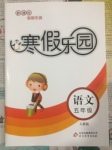题目内容
. It’s a secret. Why don’t we go and talk about this somewhere quieter? _______, you know.
| A.Once bitten, twice shy | B.Moneytalks |
| C.Walls have ears | D.Like father, like son |
C
解析

练习册系列答案
 寒假乐园北京教育出版社系列答案
寒假乐园北京教育出版社系列答案
相关题目
题目内容
. It’s a secret. Why don’t we go and talk about this somewhere quieter? _______, you know.
| A.Once bitten, twice shy | B.Moneytalks |
| C.Walls have ears | D.Like father, like son |
C
解析

 寒假乐园北京教育出版社系列答案
寒假乐园北京教育出版社系列答案